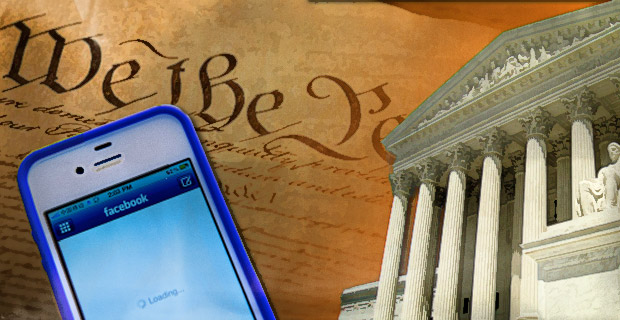Facebook vs The First Ammendment
February 17, 2015
Facebook threat court case is heard in the Supreme Court–where is the line drawn when protecting free speech on social media?
December 1, 2014, Anthony Elonis’s “therapeutic”, yet threatening Facebook statuses about his wife and law enforcement officials, earned him conviction in the eyes of the Supreme Court.
This case was no easy battle as it presented a struggle about what is a threat and what is self-expression. John Elwood, Elonis’s lawyer, argued that the government must prove he intended to instill fear in others and make them feel threatened in order to convict him.
However, Deputy Solicitor General Michael Dreeben told the justices that Elonis’s intention didn’t matter if a reasonable person felt threatened. In fact, Justice Samuel Alito agreed and said this excuse of freedom of speech “sounds like a road map for threatening a spouse and getting away with it.”
Elonis was convicted of threatening to injure his wife and was sentenced to nearly four years in prison for posting vile, aggressive Facebook statuses. Writings such as, “There’s one way to love you but a thousand ways to kill you. I’m not going to rest until your body is a mess, soaked in blood and dying from all the little cuts.”
Sarah Yu (12) was appalled that people were justifying Elonis’s actions. She claims to be disgusted that “people think it’s acceptable to hurt and scare others under the pretense of the first amendment.
On the contrary, Bruno Pita (12) explains that the first amendment was put in place to protect citizen rights, and one should be able to express themselves freely. Elonis shouldn’t have been convicted.
Evidently, the Elonis v. United States court case was one of much controversy, splitting the Mustang student body and several others down the middle. What do you think? Was convicting Anthony Elonis over a Facebook status undermining the first amendment?





































